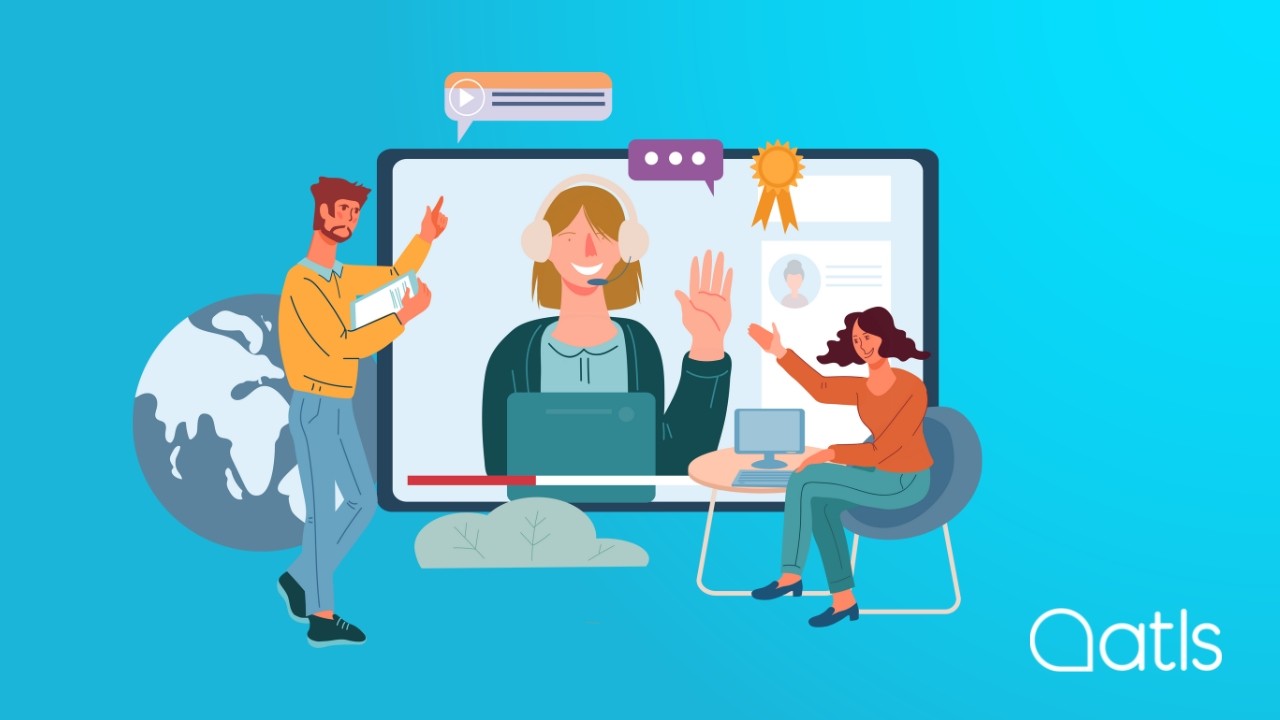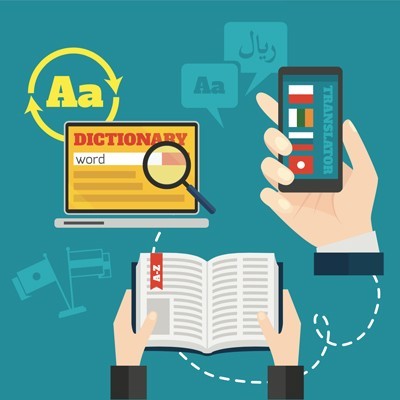The importance of translation in online training

We live in an increasingly interconnected world, which is reason for education centres to internationalise and share training content with users from different languages. As such, the translation of educational documents is key to facilitating access to training for all users. Translation in online training offers the opportunity to reach a greater number of users and expand the scope of education. This tool allows training centres to reach users from different countries and languages, giving them the opportunity to learn from quality content. For these reasons, translation into online training is a fundamental tool to ensure access to education for all users.
Find out about the opportunities offered by translation in online training
Why is translation so important for online training?
The importance of document translation in the educational field, as well as the opportunities that translation can offer in online training. Detailed explanations are provided on why it is crucial to translate documents and how translation can improve the accessibility and quality of education in different contexts.
"Every cloud has a silver lining". This is true for online training companies, as the pandemic has offered them an opportunity for exponential growth. In fact, according to an article in the newspaper the Economist, 25% of students will choose to do online training; Furthermore, according to a study by the University of Navarra, online training has grown by 900%. Analysts and experts expect that, in the coming years, this growth will continue and that this style of training will go from strength to strength, especially among larger companies.
Online training trends for companies
In addition to the direct impact of the coronavirus pandemic on digital transformation, there are several factors that have influenced the expansion of this type of training.
Increasingly digital
Almost every aspect of our daily lives has been conditioned by digital transformation in recent years: We listen to music through digital distribution platforms like Spotify, and we watch films, series and documentaries on platforms such as Netflix, HBO, Disney+, Apple TV+, Prime Video, etc.
We are buying more and more via online marketplaces rather than physically entering stores, so even the most traditional shops have had to adapt to the e-commerce model.
This is also true in the education sector, which has been impressively able to adapt to the digital world and offer more freedom and comfort to its students. As such, they can carry out training programs when and however they want.
Maximum flexibility
After the experience of teleworking during the pandemic, companies have seen the need to be more flexible and to help their employees reconcile their working lives with their personal lives. This affects both the way in which work is carried out and training within the company.
Here, e-learning and online training can appear to be the perfect option for companies, combining flexibility and accessibility into a program that can be performed anywhere.
Lifelong learning
The term lifelong learning refers to the continuation of education beyond formal education and entering the workplace and its objective is to increase knowledge and improve professional skills.
According to the World Economic Forum, 50% of working people will need training in the next five years. It is through training and continuous learning that we can maintain our competitiveness and employability in the labour market. While an individual holds some responsibility in this respect, many companies are also taking it onto themselves to continue training their workforce.
E-learning and online training can therefore appear to be the perfect option for companies, combining flexibility and accessibility into a program that can be performed anywhere.
Translation is essential for online training
Students undertaking online training for companies want content in their own language. The customisation of online courses is a vital factor for those who undertake training related to their jobs and this obviously includes content translated into the students' own language. So, supporting the interests of each individual is an important element for e-learning companies and one which many already offer.
Many companies are committed to training their employees through a Learning Management System (LMS), such as Moodle, one of the most widely used online training management platforms in the world which even has its own learning programs. Users can access courses and programmes which can be customised and integrated by HR directors, training and development teams and heads of department.
Whether online training programmes are accessed through an LMS or any other platform, it is important that they are correctly translated into the employees' language. Otherwise, the training can lose some of its value.
The solution: a translation company to adapt the training content
In short, some of the advantages of online training are the flexibility to learn anywhere and anytime, the possibility to personalise training itineraries and the lack of dependence on schedules or set spaces.
A quality translation of the course material used is essential for training to be effective, especially in the field of education. At ATLS we work with native translators who specialise in different sectors such as law, health, economics and finance, marketing, engineering, architecture, etc.
For training centres and business schools who create content, we have an API which can be used to request translations directly from the storage or creation space, with no need to worry about file formats or tracking different versions of your files. You’ll receive a quality translation which is ready to publish directly on your platform. It's that quick and easy!
At ATLS we have over 20 years' experience translating in the education sector, and have helped students all over the world to access training materials in their own language.
If you need to translate training programs for your employees, get in touch!




